Bivouac #6 / Day With(out) Art, a proposal by What’s your flavor? At the suggestion of Visual AIDS
TUESDAY, DECEMBER 1st, 2020, 6:30 p.m.
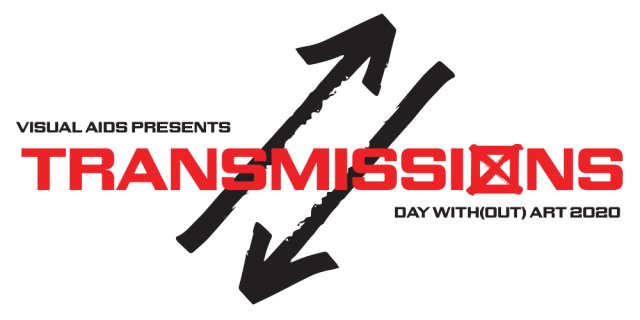
Since 1989, coinciding with the World Health Organization’s World AIDS Day on December 1, the nonprofit organization Visual AIDS has mobilized the art world around the Day With(out) Art project, as a call for “mourning and action in response to the AIDS crisis” launched from New York, through various interventions in United States, in museums, galleries, and public space. Then, from 2010, Visual AIDS has begun a collaboration with today’s artists and filmmakers to create a short films program toward HIV/AIDS, in order to raise awareness about the pandemic, and support the artists living with AIDS.
This year’s program, « TRANSMISSIONS », gathers six new videos considering the epidemy impact on an international scope, in specific contexts, with personnalities working across the world: Jorge Bordello (Mexico), Gevi Dimitrakopoulou (Greece), Las Indetectables (Chile), George Stanley Nsamba (Uganda), Lucía Egaña Rojas (Chile/Spain), and Charan Singh (India/UK).
What’s Your Flavor collective, initiated in 2014 as a programming platform for LGBTQI + experimental films linked to the Collectif Jeune Cinéma, has joined Bétonsalon - Center for Art and Research to relay Visual AIDS initiative in France, where the films will be shown and debated the same way they are in various institutional spaces, in United States and beyond.
Exceptionally, due to the sanitary conditions, the films will be available online on December 1st, on Visual AIDS’ Vimeo account (subtitles in French, English, Spanish, Greek). The panel discussion with Stéphane Gérard, Elisabeth Lebovici and Gaëtan Thomas will take place in French on Zoom and on Facebook Live at 6:30 p.m.
Register for the online panel on December 1st
Watch the six short films of the "TRANSMISSIONS" program (duration: 48 min)
+++
Stéphane Gérard’s experimental cinema focuses on political struggles and the history of gender representations, sexual orientation, hiv/AIDS and people of color (Rien n’oblige à répéter l’histoire, 2014; La Machine avalée, 2015; Entre garçons, 2018). His practice includes a reflection on the audiovisual archives’ preservation (within the Bibliothèque National de France for example), film programming (for the international project Human Frames or the Cinémathèque française) and distribution within What’s Your Flavor?, a collective dedicated to the diffusion of queer experimental cinema in France.
Elisabeth Lebovici is an art historian and art critic confined in Paris.
An AIDS activist, Elisabeth was the inaugural president of the Paris LGBT film festival, and is currently a founding member of the LIG/ "Lesbians of General Interest" fund.
She is the author, with Catherine Gonnard, of a history of women artists in France between 1880 and nowadays (Paris, Hazan, 2007).
Her latest book: What AIDS Has Done To Me . Art and Activism at the End of the XXth C (Ce que le sida m’a fait. Art et Activisme à la fin du 20è siècle. Zurich: JRP Ringier, "lectures Maison Rouge" 2017) has received the Prix Pierre Daix 2017 in art history.
Elisabeth cocurates with Patricia Falguières and Nataša Petrešin-Bachelez a seminar at the École des Hautes Etudes en Sciences Sociales (EHESS) in Paris titled: Something You Should Know: Artists and Producers.
Her blog: http://le-beau-vice.blogspot.com
Gaëtan Thomas is a historian of science and medicine, currently working as a postdoctoral fellow at Science Po Paris. He has worked on the cultural and artistic histories of the AIDS epidemic in the United States, editing and translating the writings of Douglas Crimp (Le point du jour, 2016) and Craig Owens (Même pas l’hiver, forthcoming) into French.
+++
Synopsis
Las Indetectables, Me Cuido
Me Cuido (I take care of myself/I’m careful) questions the relationship between colonial paradigms of health, religious guilt, and the stigmatization of people living with HIV in the context of Chile’s capitalist and neoliberal regime.
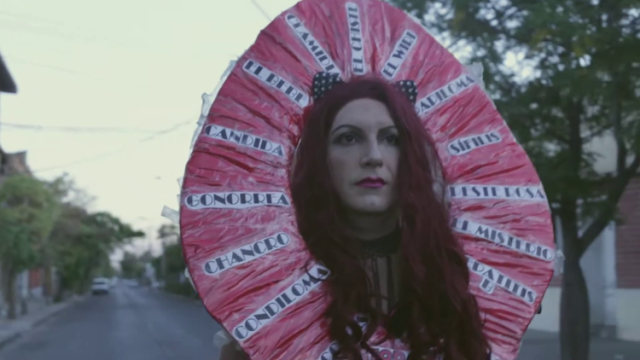
Lucía Egaña Rojas, Female Disappearance Syndrome
Lucía Egaña Rojas challenges gendered representations of HIV and AIDS, investigating what Lina Meruane has termed “female disappearance syndrome”—the erasure of women living with HIV from conversations about the epidemic.
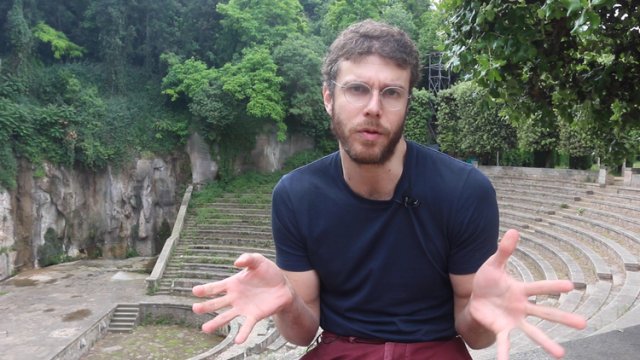
Charan Singh, They Called it Love, But Was it Love?
They Called it Love, But Was it Love? depicts scenes from the lives of kothis living in India. Reduced to a “risk group” by public health campaigns and misunderstood through Western notions of gender and sexuality, these protagonists have real lives and inhabit unique worlds with their own quests for fulfilment and love.
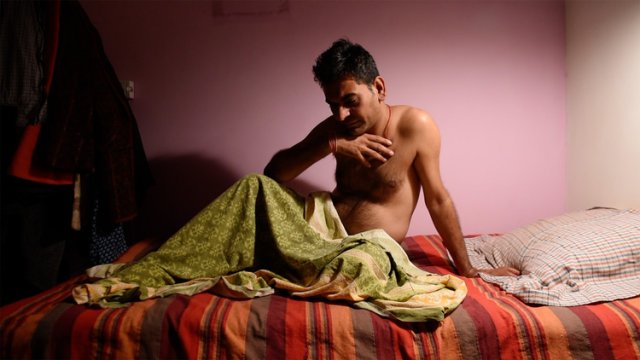
George Stanley Nsamba, Finding Purpose
Finding Purpose reflects on the experience of producing a film about the lives of teens born with HIV in Uganda and the pervasive stigma that surrounded the project.
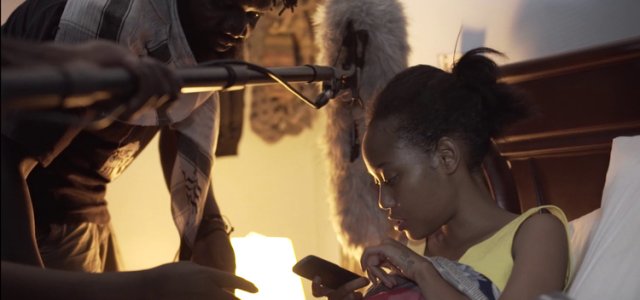
Jorge Bordello, Ministry of Health
Ministry of Health employs the aesthetics of horror movies and silent film to evoke the adverse effects of pharmaceuticals on four men living with HIV in the city of Tlaxcala, Mexico.
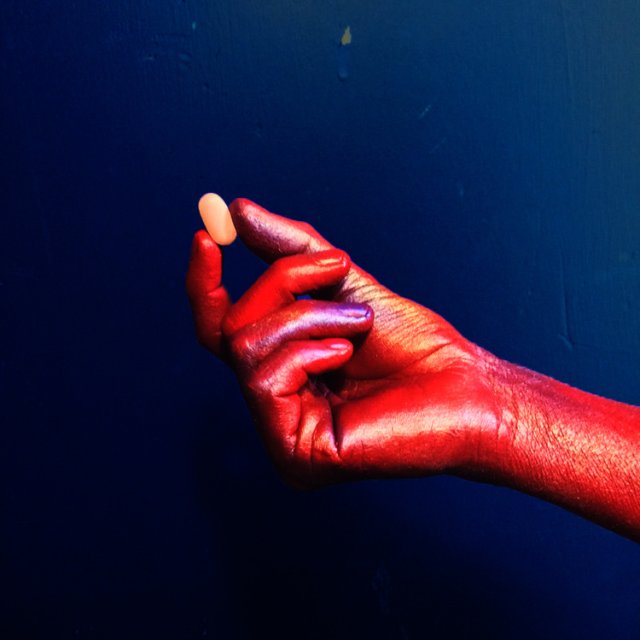
Gevi Dimitrakopoulou, This is Right; Zak, Life and After
This is Right: Zak, Life and After is a portrait of Zak Kostopoulos, a well-known queer AIDS activist who was publicly lynched to death in Athens in 2018. Zak’s chosen family and community highlight Zak’s activist life and the response that his murder has galvanized.
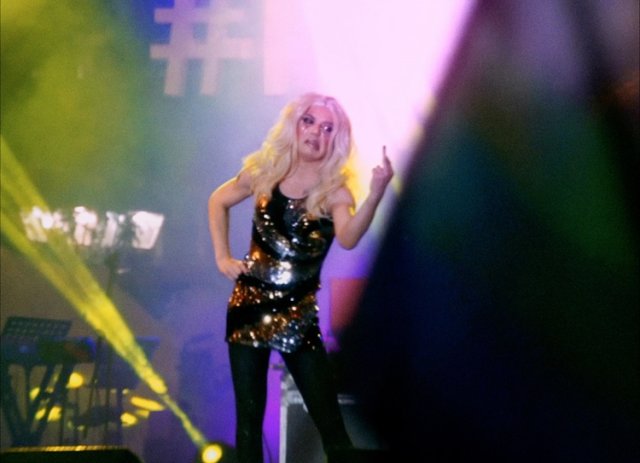

Images
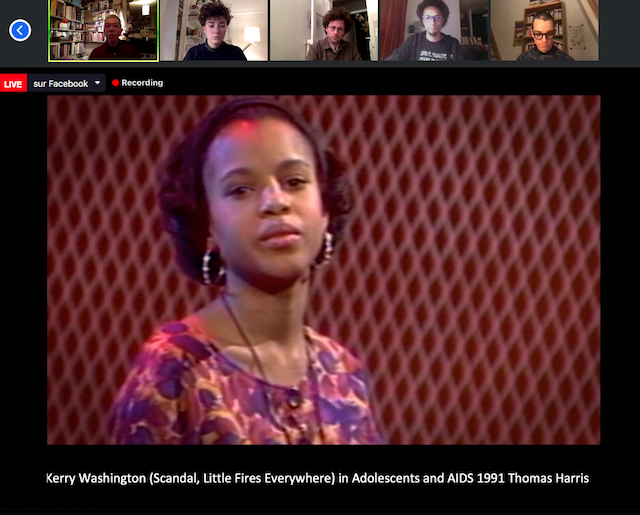
Zoom screenshot, online conversation between Stéphane Gérard, Elisabeth Lebovici and Gaëtan Thomas, Visual Aids, TRANSMISSIONS, Day With(out) Art, Bivouac #6, Bétonsalon - Center for Art and Research, December 1st, 2020.
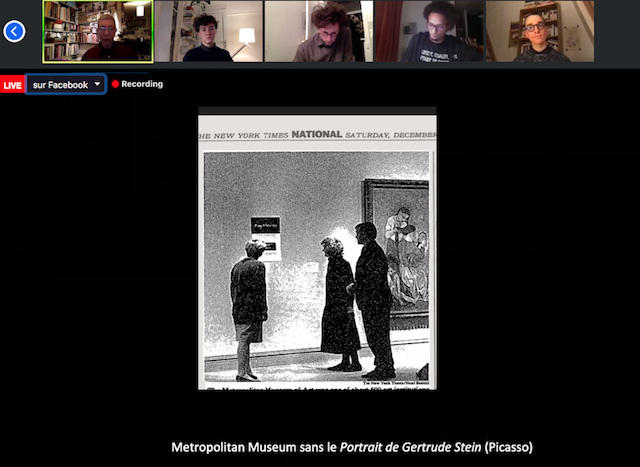
Zoom screenshot, online conversation between Stéphane Gérard, Elisabeth Lebovici and Gaëtan Thomas, Visual Aids, TRANSMISSIONS, Day With(out) Art, Bivouac #6, Bétonsalon - Center for Art and Research, December 1st, 2020.
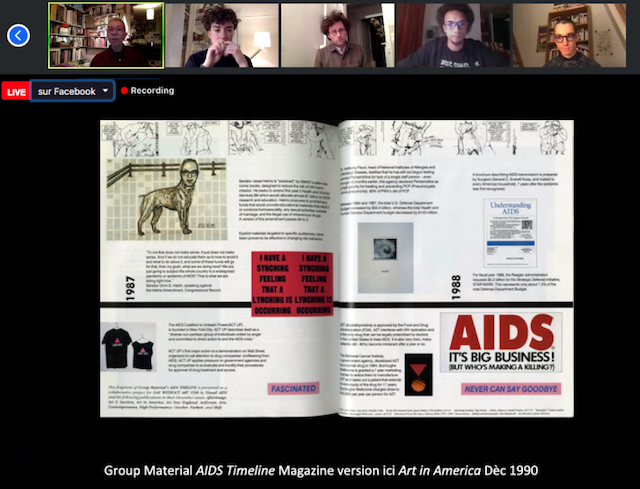
Zoom screenshot, online conversation between Stéphane Gérard, Elisabeth Lebovici and Gaëtan Thomas, Visual Aids, TRANSMISSIONS, Day With(out) Art, Bivouac #6, Bétonsalon - Center for Art and Research, December 1st, 2020.
Share